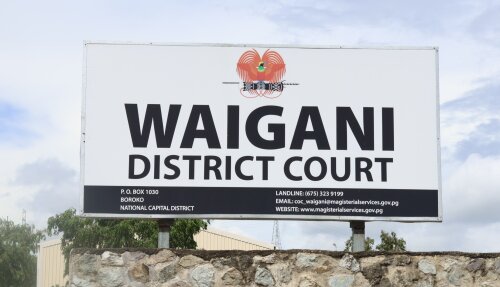Best Collaborative Law Lawyers in Port Moresby
Share your needs with us, get contacted by law firms.
Free. Takes 2 min.
Free Guide to Hiring a Family Lawyer
List of the best lawyers in Port Moresby, Papua New Guinea
About Collaborative Law in Port Moresby, Papua New Guinea
Collaborative Law is a legal process in Port Moresby, Papua New Guinea, where individuals seeking to resolve their disputes work together with their lawyers in a cooperative manner rather than through a traditional adversarial court system. This approach aims to find mutually beneficial solutions while avoiding the need for litigation.
Why You May Need a Lawyer
You may need a lawyer in Collaborative Law in Port Moresby, Papua New Guinea if you are facing a dispute with another party and wish to resolve it amicably. Common situations where individuals seek legal help include divorce proceedings, child custody agreements, and property disputes.
Local Laws Overview
In Port Moresby, Papua New Guinea, Collaborative Law is guided by specific legal guidelines and regulations set forth by the Papua New Guinea legal system. It is important to understand the local laws governing Collaborative Law, especially regarding family matters, to ensure a successful resolution to your dispute.
Frequently Asked Questions
1. What is Collaborative Law?
Collaborative Law is a legal process where individuals work together with their lawyers to resolve disputes outside of court.
2. How does Collaborative Law differ from traditional litigation?
Collaborative Law focuses on cooperation and finding mutually agreeable solutions, while traditional litigation involves a courtroom and a judge making decisions on behalf of the parties.
3. Can any legal issue be resolved through Collaborative Law?
Collaborative Law is most commonly used in family law matters such as divorce, child custody, and property division.
4. How long does a Collaborative Law process typically take?
The timeline for a Collaborative Law process can vary depending on the complexity of the dispute and the willingness of both parties to cooperate.
5. Is Collaborative Law legally binding in Port Moresby, Papua New Guinea?
Yes, agreements reached through the Collaborative Law process are legally binding once approved by a court.
6. How can I find a Collaborative Law lawyer in Port Moresby?
You can search online for reputable law firms that specialize in Collaborative Law or ask for recommendations from friends or family members.
7. What are the benefits of choosing Collaborative Law over traditional litigation?
Collaborative Law offers a more cost-effective and efficient way to resolve disputes while preserving relationships between parties.
8. What happens if the Collaborative Law process is unsuccessful?
If the Collaborative Law process is unsuccessful, both parties will need to seek alternative dispute resolution methods or proceed to court for resolution.
9. Is Collaborative Law confidential in Port Moresby, Papua New Guinea?
Yes, the Collaborative Law process is confidential, and discussions held during the process cannot be used in court unless both parties agree.
10. How much does Collaborative Law typically cost?
The cost of Collaborative Law can vary depending on the complexity of the case and the fees charged by the lawyers involved. It is advisable to discuss costs upfront with your lawyer.
Additional Resources
If you require further information or assistance with Collaborative Law in Port Moresby, Papua New Guinea, you may consider contacting the Papua New Guinea Law Society or the Collaborative Law Association for guidance and support.
Next Steps
If you are in need of legal assistance in Collaborative Law in Port Moresby, Papua New Guinea, the first step is to consult with a reputable lawyer who specializes in this area. Be prepared to discuss your situation openly and honestly to determine the best course of action for resolving your dispute.
Lawzana helps you find the best lawyers and law firms in Port Moresby through a curated and pre-screened list of qualified legal professionals. Our platform offers rankings and detailed profiles of attorneys and law firms, allowing you to compare based on practice areas, including Collaborative Law, experience, and client feedback.
Each profile includes a description of the firm's areas of practice, client reviews, team members and partners, year of establishment, spoken languages, office locations, contact information, social media presence, and any published articles or resources. Most firms on our platform speak English and are experienced in both local and international legal matters.
Get a quote from top-rated law firms in Port Moresby, Papua New Guinea — quickly, securely, and without unnecessary hassle.
Disclaimer:
The information provided on this page is for general informational purposes only and does not constitute legal advice. While we strive to ensure the accuracy and relevance of the content, legal information may change over time, and interpretations of the law can vary. You should always consult with a qualified legal professional for advice specific to your situation.
We disclaim all liability for actions taken or not taken based on the content of this page. If you believe any information is incorrect or outdated, please contact us, and we will review and update it where appropriate.









